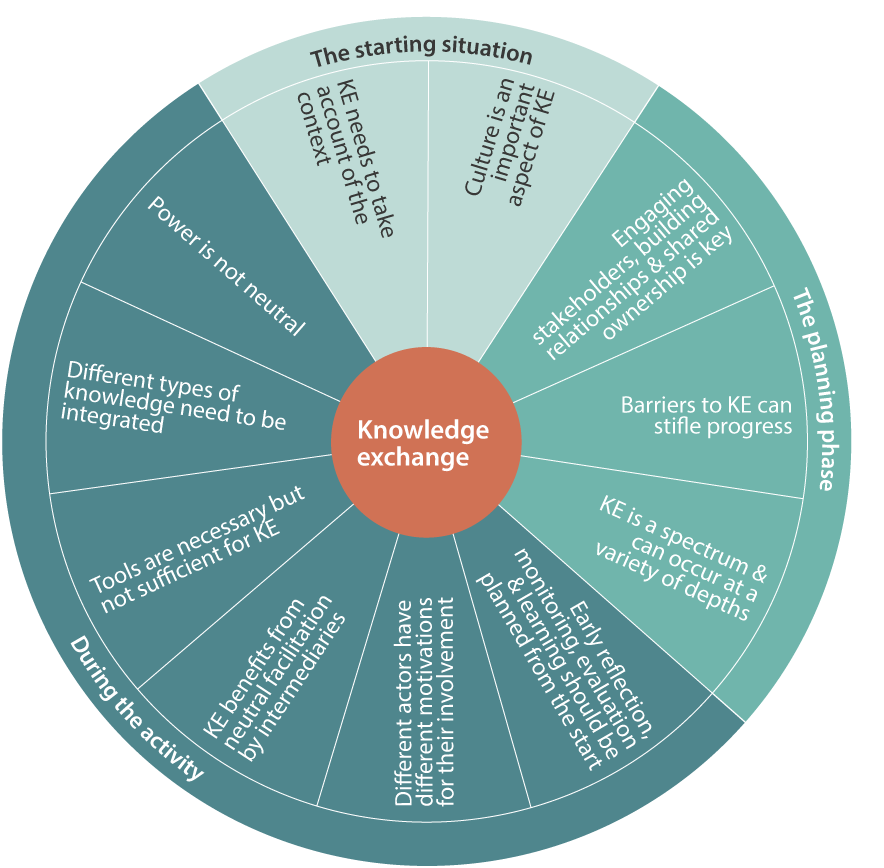Clare Downing, Sarah Higginson, Tanya Wilkins, Rose Kobusinge, Hannah Simon and Kay Jenkinson
The purpose of this paper is to draw together lessons from a systematic review of academic knowledge exchange (KE) literature with the aim of informing the energy demand field, especially with regards to policy development. The exchange of knowledge between researchers and stakeholders, such as policymakers, is an essential part of ensuring that energy demand policy is evidence-based. At its most engaged, two-way KE involves researchers and policymakers both participating in, and sometimes even co-creating policy, in a long-term relationship. Hence we consider that KE (and the tools, processes, skills, engagement methods and knowledge involved) is a critical forerunner in the journey to generate impact from research.
This paper is based on a systematic review of the KE literature across eight thematic areas, taking ten papers from each area, resulting in a review of 80 papers. Analysis of these papers synthesised the factors necessary for effective KE. CREDS is presented as a case study which demonstrates the use of KE, in particular in relation to policy impact and innovation. The paper ends with combined lessons that could be used by researchers and policy-makers to guide and support their own knowledge exchange activities.
A 10 minute presentation of the results is available from eceeeOpens in a new tab with no restrictions, but you must be a member of eceee to download the full paper.

Image text
Knowledge exchange phases:
- The starting situation – KE needs to take account of the context; Culture is an important aspect of KE.
- The planning phase – Engaging stakeholders, building relationships & shared ownership is key; Barriers to KE can stifle progress; KE is a spectrum & can occur at a variety of depths.
- During the activity – Early reflection, monitoring, evaluation & learning should be planned from the start; Different actors have different motivations for their involvement; KE benefits from neutral facilitation by intermediaries; Tools are necessary but not sufficient for KE; Different types of knowledge need to be integrated; Power is not neutral.
Publication details
Downing C., Higginson S., Wilkins T., Kobusinge R., Simon H. & Jenkinson K. 2021. The role of knowledge exchange in energy demand policy innovationOpens in a new tab. Conference paper in: Proceedings of ECEEE Summer Study 2021.
An open access versionOpens in a new tab is also available.
Banner photo credit: Alireza Attari on Unsplash
